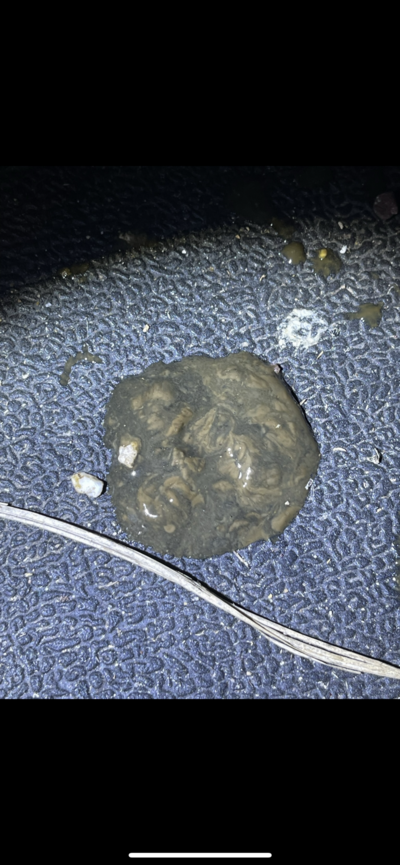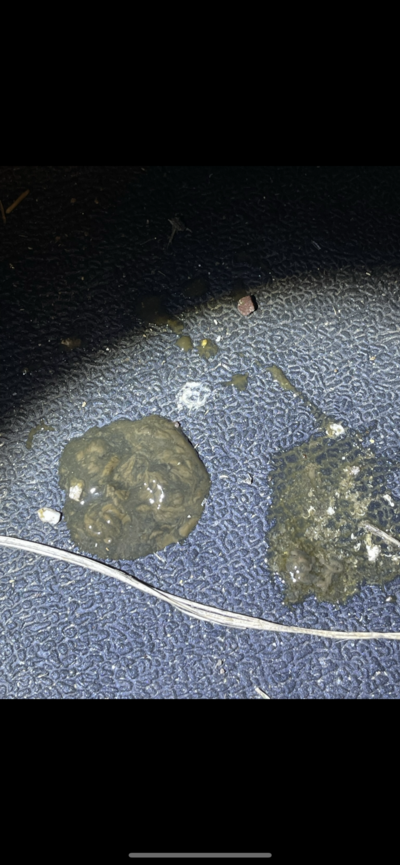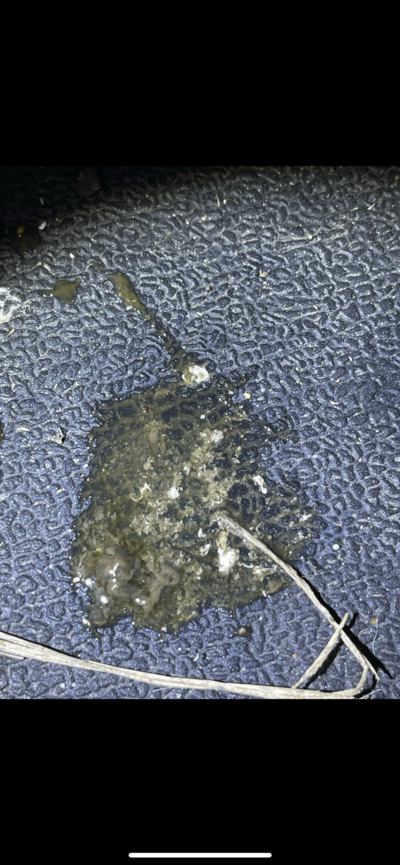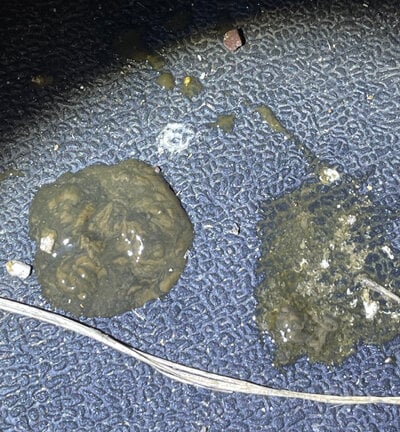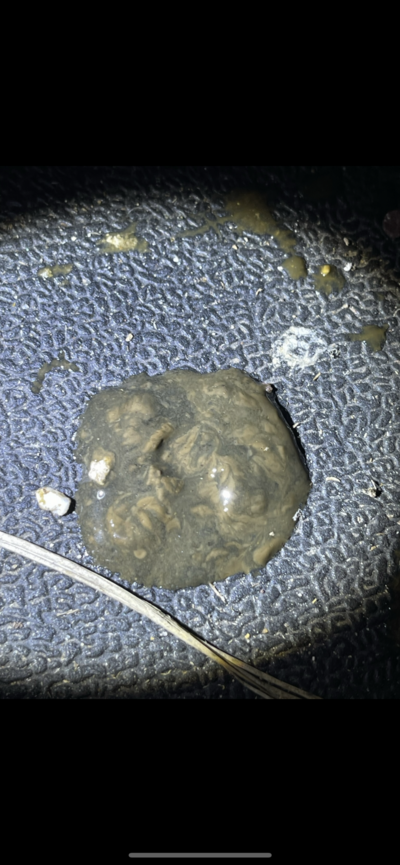Navigation
Install the app
How to install the app on iOS
Follow along with the video below to see how to install our site as a web app on your home screen.
Note: This feature may not be available in some browsers.
More options
You are using an out of date browser. It may not display this or other websites correctly.
You should upgrade or use an alternative browser.
You should upgrade or use an alternative browser.
Topic of the Week - Deworming chickens
- Thread starter sumi
- Start date
EIEIO Funny Farm
Songster
Thanks!Pumpkin seeds, peppercorns and other “natural” dewormers have been used for centuries but under much different conditions than what most of us provide for our chickens. My family used natural dewormers in their flocks in Cuba where there is nothing else. You can’t buy safeguard or ivermectin in Cuba now or then. The big differences between what they did 150 years ago and what I do:
1) chickens free range and roost free range all the time. No cage time at all. Acres of space. 2) Natural predation and human eating eliminated most chickens older than two years old. 3) Sick chickens culled right away if they didn’t respond to treatments 4) the land and space was much larger than anyone’s backyard so the waste was more spread out 5) there wasn’t any trading, buying and selling. 5) hens hatched and raised chicks (I believe this makes for healthier chicks because the hens were also healthy)) They relied on themselves to produce meat and eggs from their flocks.
They had other “natural” cures most of which included hot pepper seeds. I don’t know if any of it worked but they were successful and had a sustained flock for their needs. The short answer was to cull anything that looked sick so naturally those treatments were thought to be effective. I can’t duplicate those conditions - very different conditions than what many of us have- and I dont kill my chickens if they’re having a bad day, so I use a chemical dewormer.
I never used pharmaceutical dewormers in 7 ½ years because I never noticed a worm infestation. And I don’t want to use medication if I can avoid it.
I have a small flock (8 bantams) with a good sized run. Keeping chickens is a hobby and I don’t need to make a profit.
The chickens free range one - several hours on most days. I give DE in their favourite spot to sand bath and put garlic in the water for a 1-2 weeks about two or three times each year. I didnt buy new chickens after the first year, only fertilised eggs for a broody to hatch. They eat mostly organic feed. Even the garden is practically without herbicides/ pesticides.
Nothing scientific about this. But it seems to work. At least until now.
I have a small flock (8 bantams) with a good sized run. Keeping chickens is a hobby and I don’t need to make a profit.
The chickens free range one - several hours on most days. I give DE in their favourite spot to sand bath and put garlic in the water for a 1-2 weeks about two or three times each year. I didnt buy new chickens after the first year, only fertilised eggs for a broody to hatch. They eat mostly organic feed. Even the garden is practically without herbicides/ pesticides.
Nothing scientific about this. But it seems to work. At least until now.
Toloache
In the Brooder
- Aug 19, 2020
- 11
- 4
- 27
We struggled with tapeworms in our flock for awhile, too. I find equimax works amazingly well for that. A couple hours after the first dose I stopped seeing the live segments in their poop. We did observe a 2 wk egg withdrawal period, but one of my hens went broody during that time and I gave her a few of the treated eggs & every single one hatched into a healthy, happy chick! That kind of surprised me, I was worried the mess were going to interfere with the development in the eggs... but no issues.Three of our four chickens have tapeworm. I treated with Valbazen, and we are on our tenth day of egg withdrawal. I am still seeing live tapeworm segments in the poop. Should I treat one more time to be on the safe side? There are quite a few segments coming out in the poop, and they are still alive. I would assume this is coming from wild birds and flies. We are trying to control this as much as possible, but it's a pretty impossible task. If I worm again, at what point do I just give up and let them have tapeworm? I can't keep them on Valbazen forever.
Tapeworm segments in poop are so gross! I can't imagine seeing that and being like "ehhhh, it's fine, nothing to worry about." If you don't treat the chicken(s) quickly, your tapeworm population in other hosts is going to explode exponentially. I read a fascinating article about how ants purposefully infect themselves with tapeworm by eating the segments -- it changes their metabolism so that they are able to live a lot longer. When we had tapeworms, the ants would rush over and carry off the little segments -- in turn, the woodpeckers eat the affected ants and the tapeworms find a permanent host. I've never seen a chicken eat an ant before, but I'm sure it happens. They definitely eat plenty of other intermediate hosts.....
Cj Tracker
Songster
- Apr 18, 2020
- 98
- 114
- 121
I use the ACV and food grade DE (and I do this on intervals and use it myself as well) I believe both create an environment not ideal for parasitic hosting.There is a possible third option which is to have regular faecal worm egg counts done and use medication (wormer) when the results indicate their worm burdon is becoming too high, in much the same way as I do for my horses. The lab that does my horse faecal samples now offers the same service for poultry I believe.
I'm a big believer in only using medication when it is necessary. I have to confess that I have not used the worm egg count service for my chickens yet and with so many of them it is probably not economic in my situation. In the past 3.5 years I have not wormed my chickens other than using Verm-X natural wormer once and I'm not really convinced of it's efficacy. If I have a chicken die of unknown causes, I do a DIY post mortem and I check the digestive tract for worms as part of that. I have found the odd round worm but so far no more than that. I have a large mixed flock of varying ages that free ranges and also several pens, so worming would be complicated. I do have poultry wormer in stock as part of my first aid kit along with Corid, but so far I haven't needed either.
I do use ACV in their water daily (although they have access to other mostly rainwater whilst free ranging) but I wonder if the slight acidity from that makes the digestive tract less hospitable to parasites, although I appreciate the digestive tract is already acidic. I am a regular poop checker and whilst I did find a round worm in a cockerels poop a couple of years ago, I haven 't seen any since.... Of course with so many chickens free ranging, I know there will be some that I miss but parasites are inevitable and it is really only when they get out of balance with their host that it becomes a problem.
I think there is a temptation to try to eradicate parasites altogether and whilst that sounds attractive, I think there is a balance in all things in nature and trying to exterminate one that we humans don't like, often leads to an imbalance and other unforeseen problems like resistance to medication developing. Of course, sometimes things get out of balance for other reasons and that is when medication should be used in my opinion to try to level the playing field again.
I recently dewormed after seeing a few round worms one day followed by a large load two days later. I was concerned as I've never seen any in almost 3 years with my flock however they free range all day this summer as opposed to only a few hours before.
In hindsight, I do think the worms dumped out after eating my outdoor kitties wet food that had more DE than I normally put in the flock food.
I hate throwing the eggs away but have for over a week now. all that had work they do makes me feel terrible to waste them! not sure if the medicine makes it bad to eat or if there might be worms that's why. I have broken them and do not see evidence of worms though so I will just wait out another 3 days until almost 2 weeks has passed.
I gave them safeguard, pea sized amount, since it was for horses and I researched the diff meds and amounts, that seemed the most versatile and comprehensive treatment
The only method of worming any animal is through the use of an approved deworming medication.
I did a 'flock' fecal test back in the spring - this is where you take samples from multiple poops combine them and send to the lab. If any worms show up then one should worm the entire flock with an approved wormer medication for the type of worm identified. Not all wormers work on all internal parasites. For instance Tapeworms are not affected by Ivermectin based meds.
Recently I obtained a Polish Roo that had lice (I got him knowing he had lice); I quarantined him as per usual and I dosed him with Revolution (Kitten/Puppy dose) - in a couple of days lice went bye-bye! And also any internal parasites that he may have arrived here with.
This way once I did integrate him with flock I was assured that he had no lice and no intestinal parasites. Well other than tapeworm - he could still be carrying that. In the Fall I will do another 'flock' fecal and include his poop to make sure that there are no tapeworms.
There is no documented 'with-holding' period for eggs that I can find for any wormer. Rule of thumb though is 14 days. As for hatching eggs from hens who were laying during with-holding period I would be extremely surprised to hear of any issues surrounding the use of any wormer and problems to chicks. Having had horses, and worked around livestock, for over 40 years I have never had one issue with fetal development. In fact the opposite - I have had rescue horses here that were never wormed who pooped out buckets of round worms and ended up having weak sickly foals.
Good animal husbandry includes treating for internal parasites (and external ones also!).
I did a 'flock' fecal test back in the spring - this is where you take samples from multiple poops combine them and send to the lab. If any worms show up then one should worm the entire flock with an approved wormer medication for the type of worm identified. Not all wormers work on all internal parasites. For instance Tapeworms are not affected by Ivermectin based meds.
Recently I obtained a Polish Roo that had lice (I got him knowing he had lice); I quarantined him as per usual and I dosed him with Revolution (Kitten/Puppy dose) - in a couple of days lice went bye-bye! And also any internal parasites that he may have arrived here with.
This way once I did integrate him with flock I was assured that he had no lice and no intestinal parasites. Well other than tapeworm - he could still be carrying that. In the Fall I will do another 'flock' fecal and include his poop to make sure that there are no tapeworms.
There is no documented 'with-holding' period for eggs that I can find for any wormer. Rule of thumb though is 14 days. As for hatching eggs from hens who were laying during with-holding period I would be extremely surprised to hear of any issues surrounding the use of any wormer and problems to chicks. Having had horses, and worked around livestock, for over 40 years I have never had one issue with fetal development. In fact the opposite - I have had rescue horses here that were never wormed who pooped out buckets of round worms and ended up having weak sickly foals.
Good animal husbandry includes treating for internal parasites (and external ones also!).
The_Silkie_Farm
Songster
On it!!! I’m In the process of collecting samples for the poultry lab anyhow unfortunately it’s raining at the moment but I promise to post this for everyoneI agree! I am new to chickens and my flock is 12 weeks old. Their vent feathers are clean and the poop looks normal to me, but I don't get close and examine it. Should I? How big are the worms? Are they easily spotted? I need to see some infested chicken poo pictures please!
The_Silkie_Farm
Songster
On it!!! I’m In the process of collecting samples for the poultry lab anyhow unfortunately it’s raining at the moment but I promise to post this for everyone
Attachments
The_Silkie_Farm
Songster
I will see what I can find...
-Kathy
Attachments
The_Silkie_Farm
Songster
I agree! I am new to chickens and my flock is 12 weeks old. Their vent feathers are clean and the poop looks normal to me, but I don't get close and examine it. Should I? How big are the worms? Are they easily spotted? I need to see some infested chicken poo pictures please!
Attachments
-
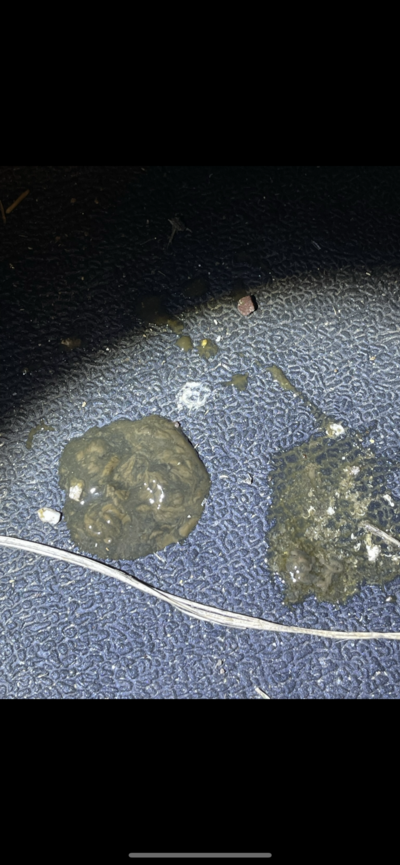 28696811-76CA-4204-A531-46F7693633D5.png2.2 MB · Views: 1
28696811-76CA-4204-A531-46F7693633D5.png2.2 MB · Views: 1 -
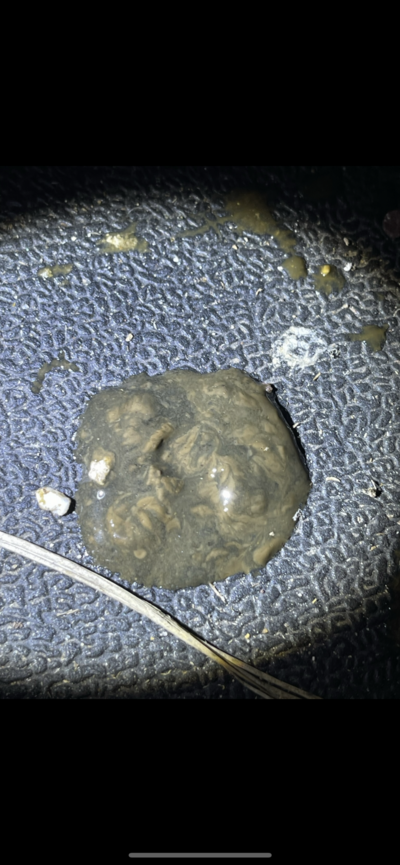 27906855-858D-493C-96B3-D924DFE5139E.png2.1 MB · Views: 1
27906855-858D-493C-96B3-D924DFE5139E.png2.1 MB · Views: 1 -
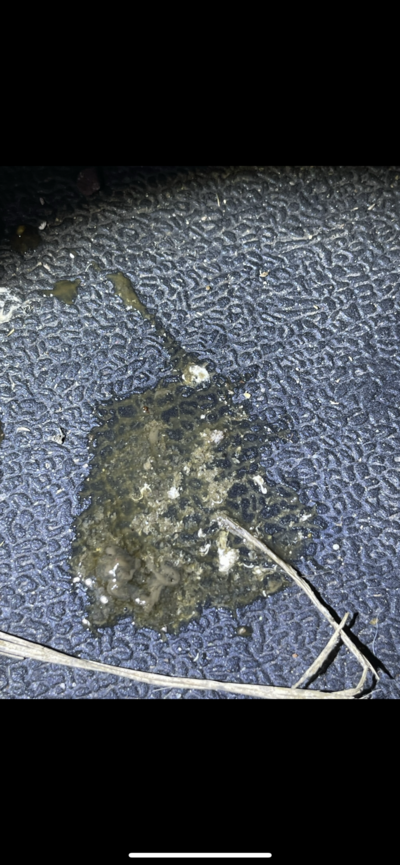 70A20071-D401-406D-8FDA-AA630B1FA008.png2.5 MB · Views: 2
70A20071-D401-406D-8FDA-AA630B1FA008.png2.5 MB · Views: 2 -
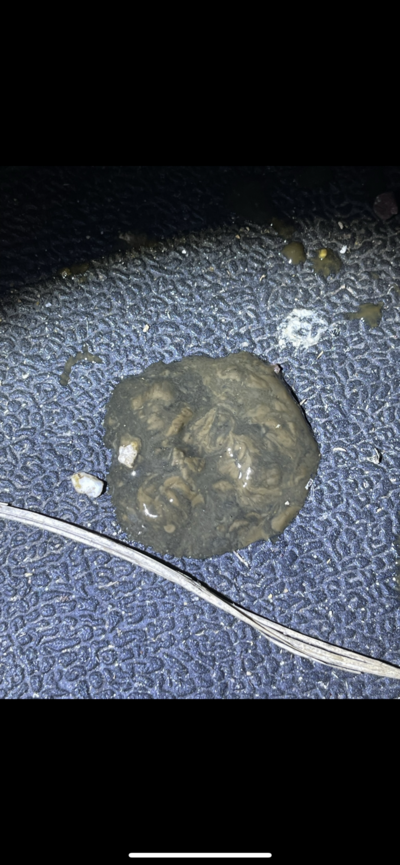 2DCC9914-7F34-47A1-A47D-B06B5C5371B1.png2.3 MB · Views: 2
2DCC9914-7F34-47A1-A47D-B06B5C5371B1.png2.3 MB · Views: 2 -
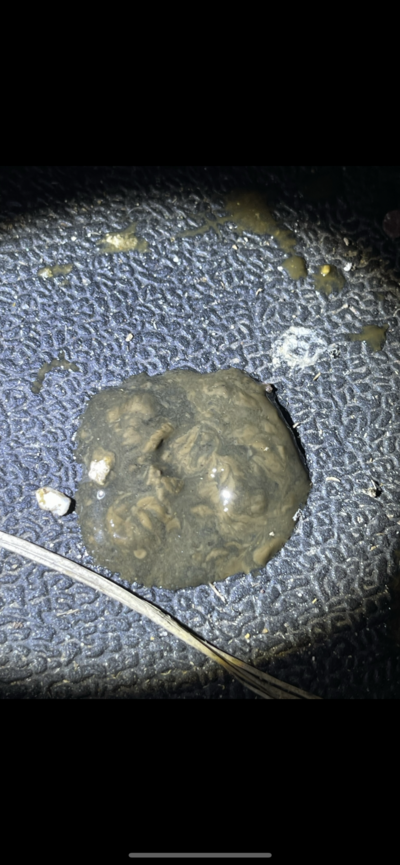 7CA1BF6A-CBE3-4A23-A419-5825B7AE2453.png2.1 MB · Views: 2
7CA1BF6A-CBE3-4A23-A419-5825B7AE2453.png2.1 MB · Views: 2 -
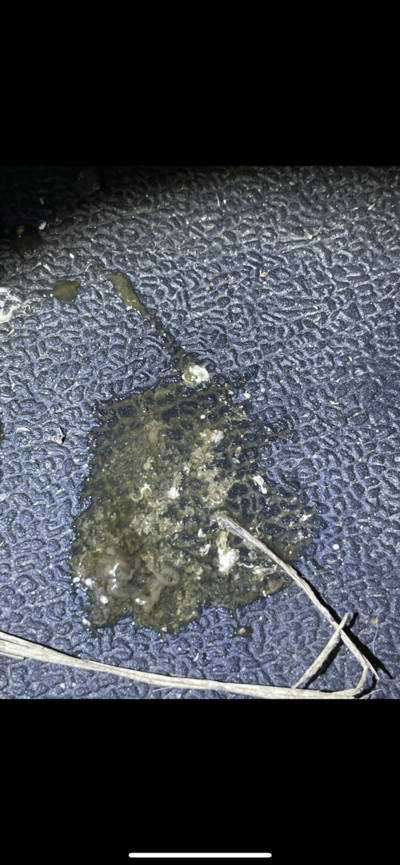 FBAECDF4-4F90-47E8-B954-D0AF78629F64.png2.5 MB · Views: 1
FBAECDF4-4F90-47E8-B954-D0AF78629F64.png2.5 MB · Views: 1
New posts New threads Active threads
-
Latest threads
-
-
Currently treating for Bumblefoot but do we also have a case of scaly leg mites?
- Started by TobyRB22
- Replies: 1
-
-
-
-
Threads with more replies in the last 15 days
-
Checking-In On Peeps - Post Here To Say Hello!
- Started by Nifty-Chicken
- Replies: 946
-
-
-
-
Can I get some help from someone with careless neighbours who own dogs.
- Started by RiDaGeckoGuy
- Replies: 102
-



